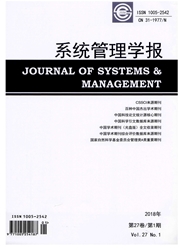

 中文摘要:
中文摘要:
基于ICLV(Integrated Choice and Latent Variable)模型,结合2013年绍兴市居民出行调查数据,研究通勤者的方式选择行为,包括小汽车、公交车、摩托车和电动车等4种当地居民在日常生活中较常用的交通方式。模型不仅分析了可观测的个人及家庭的社会经济属性对通勤方式的影响,而且通过潜变量模型构建通勤者个人对各类出行方式的态度等不可见因素,并将其纳入选择模型。结果表明,潜在的心理因素同样对方式选择行为有重要影响,并能够揭示选择行为的内在原因。该研究可为交通需求管理策略制定者以及交通规划者提供指导意见,从而促进交通系统的可持续发展。
 英文摘要:
英文摘要:
Based on the Integrated Choice and Latent Variable(ICLV)model,this study is conducted on the residents' travel data of Shaoxing City in 2013,with the aim to analyze commuters' mode choice among cars,buses,motorcycles,and electric bikes,which are the four common communication modes for local residents.Not only observed socio-demographic characteristics,but unobserved individuals' psychological factors associated with their attitudes towards various modes,are incorporated into the choice model.The results indicate that latent factors have an important influence on mode choice behavior,and they can reflect the intrinsic behavior.The results are expected to provide practical suggestions for policy-makers and transportation planners to develop effective transport strategies and sustainable transportation systems.
 同期刊论文项目
同期刊论文项目
 同项目期刊论文
同项目期刊论文
 期刊信息
期刊信息
